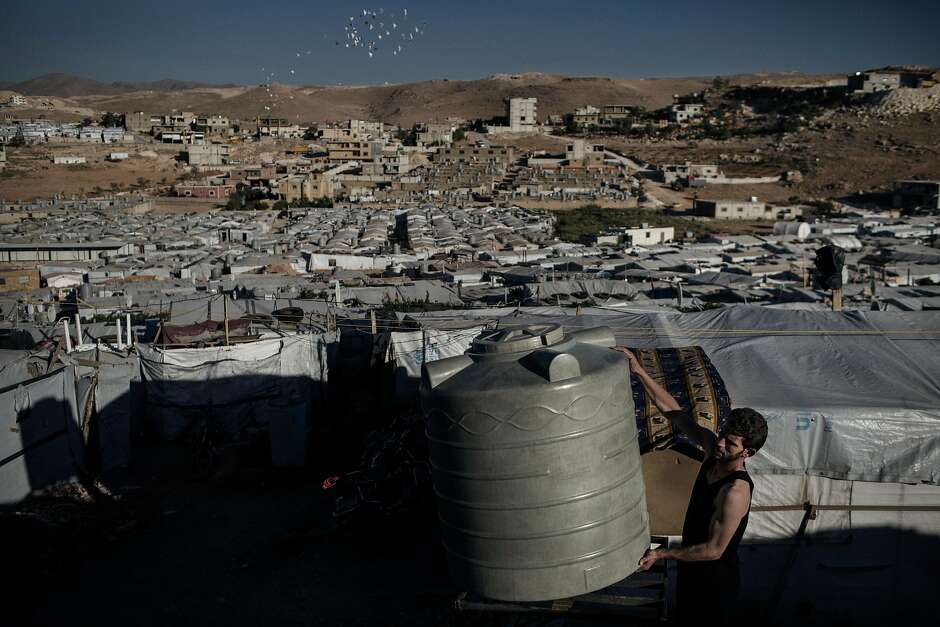
by middleeasteye.net —Victoria Yan – JBEIL, Lebanon – In Lebanon, an ancient coastal city has made an ambitious decision to ban single-use plastic bags by the end of 2018. The goal is to decrease plastic consumption and address the country’s larger chronic waste crisis better. “Honestly, this has been on my mind for a while,” Wissam Zaarour, mayor of Byblos, tells Middle East Eye. In a memo circulated in mid-July, the mayor informed the public that plastic bags were to be phased out by 31 December 2018. The plan stipulates “the use of eco-friendly bags made of recycled paper or fabric” instead, according to the memo. No information, however, was provided about penalties for those who do not comply. Speaking to MEE, Zaarour says such plans are still in the works. “I was in Athens three years ago participating in a seminar about marine pollution. I learned that a plastic bag needs around 30 years or more to degrade in the sea. On land, it takes even longer. That’s when I made the decision that we need to phase these bags out.”
Byblos, a quaint and historical city, previously frequented by American icon Marlon Brando, enjoys incoming wealth as a major tourist destination in Lebanon and the Middle East; while it’s not abnormal to spot areas lightly littered with plastic bottles and bags, its main downtown area is well-kept, save the trash floating atop the port’s waters. Lebanon has been struggling to manage its garbage for decades. While waste management laws have been drafted in the past, none have received final approval from parliament. Accordingly, recycling is largely a pipe-dream in a country with no infrastructural or strategic support.
‘You Stink’
In 2015, the capital was overrun with uncollected garbage after a dump was closed. Residents of Beirut and surrounding areas took to the streets in the thousands protesting against the government’s failed policies, under the slogan “You Stink.” The protests were halted after the state blasted peaceful demonstrators with tear gas, water cannons, and rubber bullets. While protests of the same magnitude have yet to resurge, smaller incidents have sporadically taken place. In June, protests broke out in south Lebanon’s city of Sidon, when an over capacitated waste-management facility diffused extensive odours. On the other hand, the port city that is located 40 kilometres north of Beirut, fared better in managing its waste collection and avoided a similar catastrophe in 2015. Still, like the rest of the country, the city’s efforts in waste management have not gone without its challenges. The garbage crisis in Lebanon demonstrates very clearly how those in power have weakened state institutions for the benefit of parallel businesses they have either founded or gained from. While Zaarour may not be able to change this on a national level, “I’m only a mayor,” he jokes, the upcoming ban on plastic bags is one way to tackle the issue. “Let’s say that each person consumes about 300 plastic bags a year. There are around 40,000 people living in my city, so I have around 12 million plastic bags that are going into the sea or in the dump. We need to start somewhere, and we can’t wait,” he says. According to a study, the consumption of plastic bags per person in Lebanon is 330-360 bags annually. Only 8 percent of recyclables are treated. ‘Plastic is part of our culture’ Locals, however, who are wary of the country’s political apathy and absence of proper management, feel that the ban will not be upheld. Plus, locals say, they love plastic.








